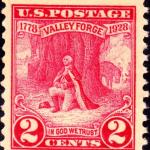Call me grumpy, call me a naysayer, or call me a Reformed Protestant (read Calvinist). But I need to offer a bit of dissent from the recent expressions of praise for the Conference on Faith and History which convened last weekend at Calvin (soon to be University) College. John Turner has not been the only one to weigh in. So too have Chris Gehrz and John Fea. Almost all of the estimates have been positive and Turner’s is particularly worth quoting since his other posts about the Puritans have been measured, critical, and discerning. He loses that outlook a bit when he writes:
While the CFH’s roots are evangelical and Reformed, and while evangelicalism remains an important part of the organization’s identity, the CFH “welcome[s] members from a variety of Christian traditions around the world.” In recent years, Catholics, Latter-day Saints, and Orthodox Christians have attended and presented at the CFH, as have many Protestants who do not think of themselves as “evangelical.” I hope we make them feel welcome.
Most CFH members teach at colleges and universities, or are preparing to do so, but that’s not exclusively the case. In recent years, the CFH has made a particular effort to encourage teachers to join and attend, and at this year’s conference, I met several longtime and new members who teach at secondary schools. I hope we make them feel welcome. . . .
Many academic organizations are attempting to broaden their memberships, paying close attention to the fact that women and non-white scholars have often felt marginalized or simply out of place at their conferences. In the case of the CFH, we want to more fully resemble the Body of Christ.
That body of Christ business is what agitates. When I went to graduate school, the academy was appealing precisely because it represented a space to ask hard questions, to hear opposing perspectives, to be challenged intellectually. The church or the academy as the body of Christ may also do that but the space of Christianity is generally one of acceptance, comfort, and reassurance. I personally do not see faith, in the form of being inclusive and showing Christian virtues, as one that raises hard questions. Instead, faith-based intellectual life invariably produces a sense of unity that breeds conformity.
This was my experience while teaching at Wheaton College and is very different from the environment at Hillsdale College. At Wheaton, the piety encouraged assumptions that all students and faculty were in agreement about Christianity. Yes, we might worship in different communions and congregations, but we were all essentially one in Christ. And that expectation for unity meant that bringing up the ways that Calvinists disagree with Arminians, or Presbyterians with Anglicans, or Baptists with Pentecostals was not something to be encouraged. “Let’s focus on what brings us together, not what makes us different.” Unity is an understandable desire for an institution. But it is a denial of the real disagreements that exist within Protestantism and Christianity more generally.
At Hillsdale College, an institution that is recovering its Christian roots (not Free Will Baptist though), the ethos is much more Christian-friendly than Christian. Everyone who teaches and studies at Hillsdale soon learns that Christians are not united. In addition to evangelical groups, the college has a vigorous Roman Catholic elements, confessional Lutherans and Presbyterians, Baptists, non-denominational believers, and Eastern Orthodox. No one presumes to speak for “Christianity” with this kind of diversity. No one thinks that we share the same spiritual ideals or same faith, even though a majority of faculty and students are Christian. What unites people at Hillsdale is a common academic enterprise and charity for the Christian and West’s past, which in turn allows for diverse and competing interpretations of Christianity.
My own sense is that the Conference on Faith and History is more like Wheaton than Hillsdale. To disagree at CFH with other Christian historians about the history of Christianity or even about politics is to run the risk of being pugnacious and lacking in Christian virtues. In point of fact, disagreement is when ideas and arguments become exhilarating.
An expectation for calm among Christian historians has much to do in my mind with the challenges that Mark Noll called the scandal of the evangelical mind. Academic work requires a shared set of rules for argument, evidence, and methods. But an expectation for unity about some big questions in Christianity and human history is to squelch the disagreements that often times improve scholarship.
This may explain Gene Zubovich’s recent point that Roman Catholics are better at intellectual labor than evangelicals:
Catholics contributed a disproportionate share of intellectuals and professionals for the religious Right, while evangelicals provided the bodies and the votes. Unlike the Jewish intellectuals clustered around neoconservative publications, Catholic conservatives were more reliable on cultural issues such as abortion. It is no small irony that Notre Dame has become the most important centre for the historical study of evangelicalism. In 1994, the influential historian, and evangelical, Mark Noll called the lack of rigorous intellectual activity among evangelicals a ‘scandal’. Ten years on, he celebrated ‘the increasing engagement between evangelicals and Roman Catholics’ for the ‘improved evangelical use of the mind.’
I am fairly sure that for CFH members and conference participants, contributing intellectual leadership to the religious right is not the best indicator of scholarly success, though that says more about the politics of evangelical historians than it does about theology or worship. The better comparison might be between CFH and the American Catholic Historical Association. At the latter meetings that I have attended, academic business is more in view than at CFH where spiritual affinities and aspirations accompany panels and papers of mixed quality.
I understand that in the world of higher education where matters of faith are at best marginal, having an association of fellow believers as professional peers is attractive. It is also the case, though, that believers are supposed to have outlets for fellowship elsewhere, like at church. Lots of people in other professions go to work and attend work-related conferences without wishing for Christian reinforcement or fellowship. Shouldn’t academics be tough enough to do the same?















